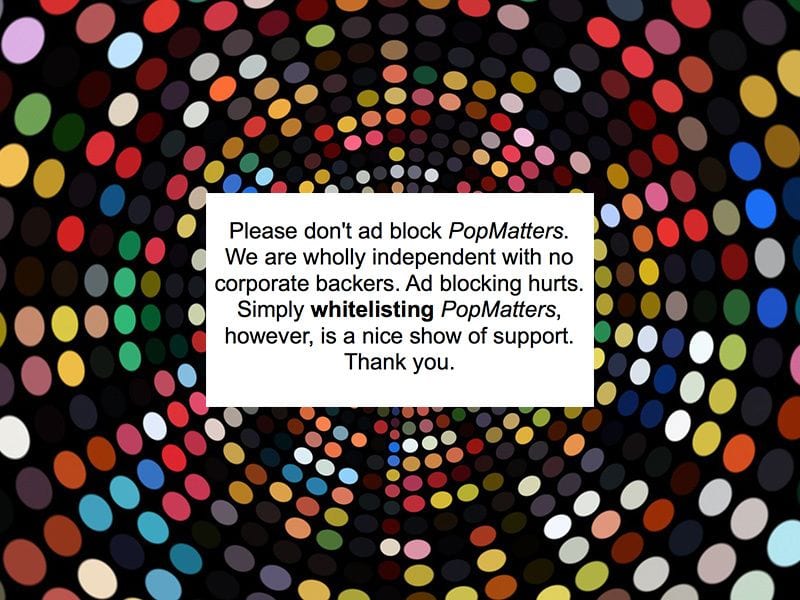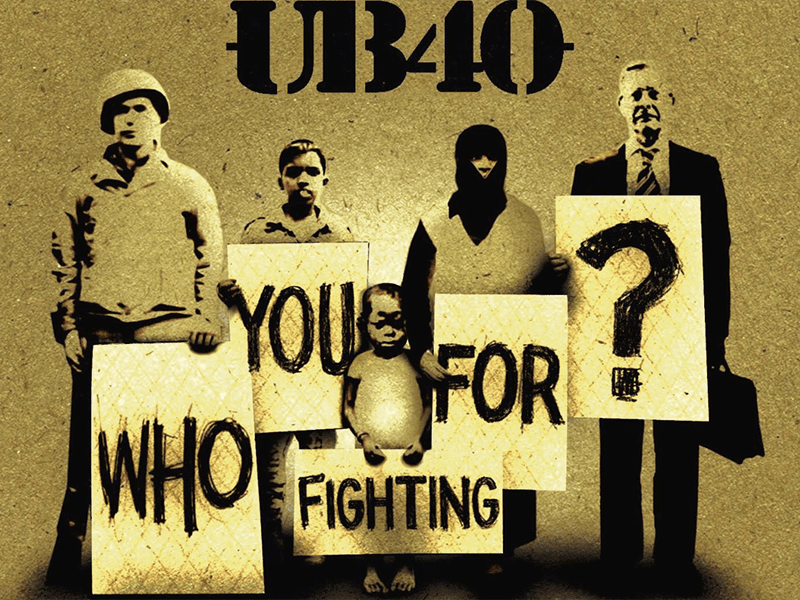To say the last two years of American politics have been bat-shit crazy is a colossal understatement. We’re living with the chaos, even if we don’t accept it. And while each new development in the current administration seems more insane than the last, nobody – and I mean nobody – could have predicted the latest wrinkle that somehow involves the veteran UK musical outfit UB40.
In case you haven’t already read about it, the current investigation of Supreme Court nominee Brett Kavanaugh recently unearthed yet another unsavory tidbit about his past. As a Yale undergrad, Kavanaugh and friends reportedly attended a UB40 concert and thought they spotted the band’s singer, Ali Campbell, in a bar after the show. When the man denied he was Campbell, Kavanaugh threw ice in the man’s face and lots of frat boy testosterone was let loose.
It’s possible that stranger events have brought a once-ubiquitous band back into the spotlight, but if so, I’m not aware of them. Generation X talk show hosts have been having fun with the latest news, with Seth Meyers and Stephen Colbert both making references to the fact that if you remember UB40, “you be 40.” A real groaner of a line, but it’s not inaccurate. It may be time to revisit this band for music fans that may not have been around the first time.
The music of UB40 seemed to be inescapable in the late ’80s and early ’90s, but they’d been making music for several years prior to that. Formed in the late ’70s in working-class Birmingham, England, the band successfully fused their love of reggae with socially conscious lyrics (the band’s name refers to a British unemployment benefits form). Music fans more familiar with the overly synthetic nature of their mid-period output – lots of electronic drums and synthesizers – might be pleasantly surprised to hear some of these early releases, particularly Signing Off (1980), Present Arms (1981) and UB44 (1982). The arrangements are less cluttered and more in line with the more organic dub sounds that would define reggae music of the era (synths are still all over these albums, but in a more dialed-down manner). Additionally, the band was embracing its sociopolitical concerns with songs like “One in Ten” (the title describing the percentage of the local workforce claiming unemployment in their region of the UK at the time) and “Food for Thought” (related to the hypocrisy of Christmas while children starve in Africa). Heavy stuff, but you could dance to it.
UB40’s leftist politics also make Kavanaugh’s relationship to their music a bit of a head-scratcher, which Campbell acknowledged when he was interviewed by The Guardian about the issue. “You don’t expect a rightwing Republican to follow a leftwing reggae socialist band from Birmingham,” he said. “Maybe he just loves reggae… and didn’t listen to our lyrics.”
In 1983, UB40 released a concept album that seemed to signify a shift while remaining in their wheelhouse: an album of covers representing their love for classic reggae songs. There were covers of established reggae songs (Eric Donaldson’s “Cherry Oh Baby”, The Melodians’ “Sweet Sensation”, Jimmy Cliff’s “Many Rivers to Cross”), in addition to non-reggae compositions modelled after previous reggae covers – their version of Neil Diamond’s “Red Red Wine” is inspired by Tony Tribe’s version. Similarly, they cover the Impressions’ “Keep On Moving” in the style that the Wailers recorded it.
Some fans cried foul at the idea that this hardcore protest band would make such a pop-friendly, crowd-pleasing, synth-washed move. But it didn’t faze the band members. “We actually set out in the first place to popularize reggae,” said guitarist Robin Campbell. Ali added, “We commercialize our music all the time. It’s been a series of compromises.” The public seemed to agree, as the album was a worldwide smash (and a modest success in the US – for the time being).
In the wake of 1997’s Labour of Love, UB40 went back to making relatively covers-free albums for a little while: Geffery Morgan, (1984), Baggariddim (1985), Rat in the Kitchen (1986) a self-titled album that featured a version of “I Got You Babe” with Chrissie Hynde. These seemed to retain a bit of the old protest bite. Then in 1988, something odd happened. “Red Red Wine” was suddenly a huge hit again, even in the US, where it shot up to Number 1 on the pop charts (its rebirth is largely attributed to the band performing the song at the Nelson Mandela 70th Birthday Concert that year).
UB40 capitalized on the single’s second life by recording and releasing Labour of Love II in 1989. While still a covers album, the reggae songs were tempered with a healthy portion of classic soul songs, like Al Green’s “Here I Am (Come and Take Me)”, The Temptations’ “The Way You Do the Things You Do”, and the Chi-Lites’ “Homely Girl”. Predictably, it was another big hit, despite that the band could be accused of beating a dead horse (not to mention that the assault of synthetic instrumentation was beginning to fall out of fashion – grunge was only a year or two away).
UB40 rode the wave as long as they could. The next album, Promises and Lies (1993) wasn’t strictly a covers album but the one cover – Elvis Presley’s “Can’t Help Falling in Love” — was a huge hit. Two more Labour of Love projects were eked out – the fourth one, released after Ali left the band, featured his brother Duncan on vocals. It didn’t go over well. “We don’t talk about that one,” says Astro, the band’s trumpet player/vocalist.

UB40 still exists – strangely enough, in two different bands. In addition to the main lineup, Ali Campbell, Astro, and keyboard player Mickey Virtue have formed a new band under the awkward, legally compliant moniker “UB40 Featuring Ali, Astro and Mickey”. Ali’s band made an album of new material while the “real” UB40 seems content to make more covers albums and tour the nostalgia circuit.
Their existence as a more pop-friendly band greatly overshadows their early, edgier years, and hardcore reggae fans often have a hard time accepting UB40. That’s understandable. Nobody’s going to confuse UB40’s slick take of “Johnny Too Bad” with The Slickers‘ original. Their silky-smooth cover of “Can’t Help Falling in Love” is hardly the kind of stuff you could easily slide into a playlist alongside Junior Murvin or Toots and the Maytals.
But UB40 is a band that has managed to achieve two goals that should be applauded. First, they’ve given pop music fans a glance at reggae music beyond Bob Marley’s noble-yet-overplayed Legends compilation. Through their covers, they’ve introduced the world to Winston Groovy, U-Roy, The Paragons, Boy Friday, and so many more. Record companies have taken action on this issue – the 2003 deluxe edition reissue of the classic reggae soundtrack to The Harder They Come (1967) includes a bonus disc featuring a few of the original songs covered by UB40. Additionally, that same year, as part of their acclaimed compilation series, Trojan Records released Trojan Originals Box Set that includes the original versions of most of the Labour of Love songs.
Second, UB40 is a perfect “guilty pleasure” band. Throw on Labour of Love (either of the first two – things get a bit shaky after that) and dance your cares away. It’s kind of cheesy, it’s pretty shallow, but at its very core is the beating heart of reggae music. In the age of Brett Kavanaugh, we can also use an antidote.


![Call for Papers: All Things Reconsidered [MUSIC] May-August 2024](https://www.popmatters.com/wp-content/uploads/2024/04/all-things-reconsidered-call-music-may-2024-720x380.jpg)



